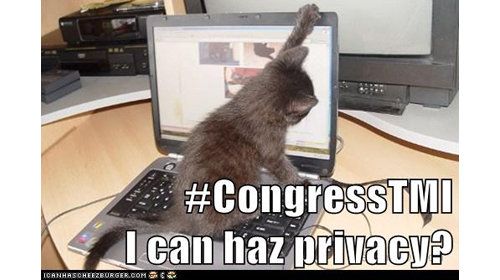Cross posted from The Stars Hollow Gazette
While we were mostly fixed on the aftermath of explosion at the Boston Marathon, a non-partisan 11-member panel, that had been convened by the legal research and advocacy group, Constitution Project to look into the treatment of detainees after 9/11, released a 577 page report (pdf) on Tuesday.
The report relying solely on public records, interviews with detainees, military officers and interrogators, concluded that “it is indisputable that the United States engaged in the practice of torture” under the Bush administration:
The use of torture, the report concludes, has “no justification” and “damaged the standing of our nation, reduced our capacity to convey moral censure when necessary and potentially increased the danger to U.S. military personnel taken captive.” The task force found “no firm or persuasive evidence” that these interrogation methods produced valuable information that could not have been obtained by other means. While “a person subjected to torture might well divulge useful information,” much of the information obtained by force was not reliable, the report says.
At emptywheel, Marcy Wheeler points out the report contains a “number of errors, repetition of dangerous misinformation, and incomplete reporting” but it is still important and comprehensive and its conclusion valuable:
Because even this cautious, bipartisan, institutionalist report concludes the following (among other findings):
Finding #1: U.S. forces, in many instances, used interrogation techniques on detainees that constitute torture. American personnel conducted an even larger number of interrogations that involved “cruel, inhuman, or degrading” treatment. Both categories of actions violate U.S. laws and international treaties. Such conduct was directly counter to values of the Constitution and our nation.
Finding #2: The nation’s most senior officials, through some of their actions and failures to act in the months and years immediately following the September 11 attacks, bear ultimate responsibility for allowing and contributing to the spread of illegal and improper interrogation techniques used by some U.S. personnel on detainees in several theaters. Responsibility also falls on other government officials and certain military leaders.
Finding #3: There is no firm or persuasive evidence that the widespread use of harsh interrogation techniques by U.S. forces produced significant information of value. There is substantial evidence that much of the information adduced from the use of such techniques was not useful or reliable.
Finding #16: For detainee hunger strikers, DOD operating procedures called for practices and actions by medical professionals that were contrary to established medical and professional ethical standards, including improper coercive involuntary feedings early in the course of hunger strikes that, when resisted, were accomplished by physically forced nasogastric tube feedings of detainees who were completely restrained.
Finding #19: The high level of secrecy surrounding the rendition and torture of detainees since September 11 cannot continue to be justified on the basis of national security.
Finding #21: The Convention Against Torture requires each state party to “[c]riminalize all acts of torture, attempts to commit torture, or complicity or participation in torture,” and “proceed to a prompt and impartial investigation, wherever there is reasonable ground to believe that an act of torture has been committed in any territory under its jurisdiction.” The United States cannot be said to have complied with this requirement.
The panel was formed after Pres. Barack Obama decided in 2009 not to support a national commission to investigate the post-9/11 counterterrorism programs, as proposed by Senator Patrick J. Leahy (D-VT) and others. “Look forward, not backward”, the president said. included former Senator Asa Hutchinson (R-AL), who served in President George W. Bush’s administration from 2003-2005 as the Under Secretary for Border and Transportation Security in the Department of Homeland Security, and former Representative James Jones (D-OK) who served as the U.S. Ambassador to Mexico from 1993-1997. Among the other members were a three-star general and former president of the American Bar Association.
Significantly the New York Times article notes this:
The United States is a signatory to the International Convention Against Torture, which requires the prompt investigation of allegations of torture and the compensation of its victims. [..]
While the Constitution Project report covers mainly the Bush years, it is critical of some Obama administration policies, especially what it calls excessive secrecy. It says that keeping the details of rendition and torture from the public “cannot continue to be justified on the basis of national security” and urges the administration to stop citing state secrets to block lawsuits by former detainees. [..]
The core of the report, however, may be an appendix: a detailed 22-page legal and historical analysis that explains why the task force concluded that what the United States did was torture. It offers dozens of legal cases in which similar treatment was prosecuted in the United States or denounced as torture by American officials when used by other countries.
The report compares the torture of detainees to the internment of Japanese Americans during World War II. “What was once generally taken to be understandable and justifiable behavior,” the report says, “can later become a case of historical regret.”
Laura Pitter, counterterrorism adviser at Human Rights Watch, joined Democracy Now‘s Amy Goodman and Nermeen Shaikh to discuss the report,s “indisputable” evidence that the Bush administration tortured.
What Marcy said:
In short: it was torture, it was illegal, it was not valuable, and it still needs to be prosecuted.
Instead, The Justice Department instead chose to prosecute Central Intelligence Agency (CIA) whistleblower John Kiriakou, who refused to participate in torture and helped exposed the torture program. Mr. Kiriakou was sentenced to prison while the torturers he exposed walk free. Nice job, Barack.

 The
The  The controversial data sharing bill,
The controversial data sharing bill,